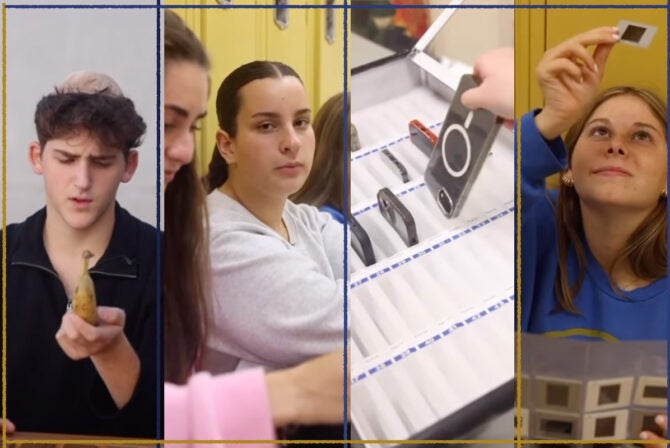This post is part of our Torah commentary series. This Shabbat we read Parashat Vayikra. To read a summary of the portion and learn more, click here.
Sacrifice: the act of giving up something that you want to keep especially in order to get or do something else or to help someone.
–Webster’s Dictionary
Recently I’ve been thinking about sacrifice and motherhood. First we stop drinking, then we surrender our waistlines…and that’s before they’re born and the real work begins.
But the idea of “making sacrifices” for my daughter makes me uncomfortable. It sounds a little…controlling. After all, I chose this path. I asked to bring a child into the world, and I was lucky enough to receive this incredible little kid. And as I’m sure she’ll point out in her teenage years, she never asked to be born.
So to call anything related to her a “sacrifice” feels unfair, as if I’ll one day be yelling at her, “How can you behave like this, after all I sacrificed for you!”
And yet I do have to admit that the above definition of “sacrifice” is a decent description of the daily reality of parenting a young child. Goodbye to my petty desires: sleeping in, spontaneously hanging out with friends, not getting someone else’s poop on my hands. Giving up (some of) my small wants and luxuries is just part of the game.
This week’s Torah portion,
Vayikra
, is all about sacrifice. Not the Webster’s kind, but the ancient kind: fire, animals, wheat, oil, incense. Ever wondered which animals to offer for thanksgiving, and which for atonement? Or what to do if you’re supposed to sacrifice a ram, but can’t afford one? Vayikra has you covered (although, before you run out and buy a lamb, sacrifices haven’t been offered since the destruction of the Temple almost 2000 years ago).
Slaughtered rams, frankincense, sin-offerings: not exactly kid-friendly material on the surface. But oddly, there is a centuries-old tradition of small children beginning their Torah study with this exact portion.
Why start little kids here, with a list of obscure sacrifices we no longer observe? Why not start at the beginning, with the creation of the world?
Over 600 years ago, some rabbis asked the same question. The answer they came up with was sweet and rather mysterious: “Since the sacrifices are pure and the children are pure, let the pure come and deal with the pure.”
The English word “sacrifice” is related to the word “sacred,” but the original Hebrew is “korban,” which derives from the root for closeness. So a more literal translation for the Hebrew would actually be something like “closening.”
Yes, the offerings are sacred, but they also serve a specific purpose: to bring us closer. Sacrifices are what one of my teachers used to call a spiritual technology: an opportunity for connection with the Divine. Or, if you prefer, a chance to connect with the spiritual part of ourselves, which can easily get clouded over in the course of daily life.
With this in mind, the idea of making sacrifices as a parent doesn’t seem so manipulative after all. Do I mean abandoning your dreams entirely and ignoring your own deepest needs to pursue sainthood as a mother? No! After all, the Torah commands you to sacrifice animals, grain and oil–not yourself.
What I’m talking about is the daily practice of looking beyond our fleeting wants and desires in order to give our kids what they need. Pushing ourselves beyond physical comfort. Letting go of control over our space, our time, and the desire for a food-free floor.
These sacrifices are not easy, otherwise they wouldn’t be sacrifices. But neither do they have to lead to self-pity or resentment. Instead, they can be opportunities for closeness.
Maybe this is another reason why little children traditionally start with Vayikra. They live in closeness; they see the world with wonder, with awe, with the sort of clarity that can be hard for us adults to remember.
As for us, we make sacrifices for our kids because we know they are the right thing to do, the only thing to do. They are love in action. And in making them, we get to use this ancient spiritual technology in our own lives. We draw closer to our children, and draw them close to us.
But it’s beyond that, too. In transcending our temporary needs and desires, we grow closer with the world. We begin to move beyond who we were, what we thought we needed, what we thought our lives would look like. And we move into the simple reality of what is.
To read the previous posts in our Torah MOMentary series, click here.
Like this post? Get the best of Kveller delivered straight to your inbox.








